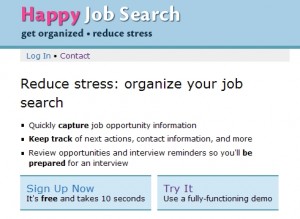Yesterday, I attended the Military Job Fair of Virginia. This job fair caters to transitioning and former military personnel. My firm does a lot of recruiting for defense contractors and we wanted to expand our network of candidates. It was a great event and we met a lot of good people.
Interestingly, the most common first question I was asked was “What jobs do you have?” This may seem like an acceptable question – it is a job fair with companies trying to fill jobs, after all. The problem is that it demonstrates that the job seeker is focused solely on their needs. This goes to the heart of the biggest mistake you can make in your job search.
Who is the Customer?
In a job search, who is the customer and who is the sales person? Companies advertise jobs, market themselves to generate interest and traffic and need to persuade job seekers to work for them. Based on this, most people consider the company as the party that is selling and the job seeker is the buyer.
This is wrong. The company is the one with the money, and the job seeker is the one that has the “product” to sell. The “product” the job seeker is offering is the contribution they will provide the company. How can you make a good impression and get a hiring manager excited about you if you are focused on “what’s in it for you.”
The other problem with asking about jobs is that it is almost impossible to answer. A company that goes to a job fair usually has multiple needs. For large companies, this could be hundreds, or even thousands of jobs. The company representative then has to pick what job they think is most appropriate for the job seeker based only on what they see. Do you want to be categorized and stereotyped based on your appearance? Leading off with this question is asking to be stereotyped.
For some people, how they look will not create the right impression.
Job Seeker Example
Although the job fair was designed for transitioning military personnel, it covered a much broader range. In fact, there were a number of entry level job seekers, particularly in administrative roles. Because the event had a military focus, there were less women than men.
There was a point midway during the day, when I had talked with a series of young women that were all looking for administrative positions. Then, a woman I remember walked up that looked especially young and had a similar image to the others I met.
If she had led off with “What jobs do you have,” I would then have to guess what career field and the level of the position would interest her. Essentially, by asking about jobs first, she would be requesting that I stereotype her based on the other job seekers I had met that day.
Instead, this woman started off by saying, “Hi, I’m <name>. I have been working in the <industry> for the last eight years and just completed my MBA. I’m interested in learning about your firm.”
By framing her background, she ensured that I got the right impression of her from the start.
What Should You Do at a Job Fair
Your goal at a job fair should be to build a relationship with a number of companies. Talk to as many people as you can. Learn a little about each company. Make sure you take away information that will allow you to follow up with the person you met.
I talked with well over one hundred people. I can only a recall a few. The ones that I will end up working with are the ones that are proactive and follow up with me. This demonstrates both initiative and organization.
If you have attended job fairs in the past and didn’t get the results you wanted from them, change your approach. Focus on building a relationship with the recruiters that are there (both corporate and agency), and follow up after the event.
Additional Resources
I’m going to start working on a guide to help job seekers get better results from job fairs. On the way home yesterday, I mapped out the organization for the guide and some of the tools I’m going to include. It should help you make job fairs much more effective for you in the future.
I’m hoping to make this available in the next few weeks and will announce its availability here on the blog. Check back for more information.
 I ran into a tool today that could be helpful in a job search. The tool, HappyJobSearch, allows a job seeker to create an online account to track their job search activity.
I ran into a tool today that could be helpful in a job search. The tool, HappyJobSearch, allows a job seeker to create an online account to track their job search activity.

